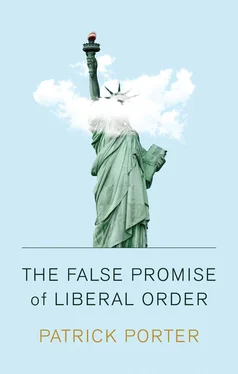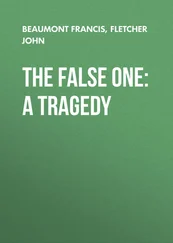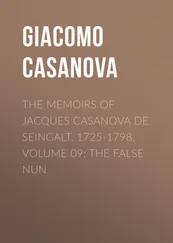Patrick Porter - The False Promise of Liberal Order
Здесь есть возможность читать онлайн «Patrick Porter - The False Promise of Liberal Order» — ознакомительный отрывок электронной книги совершенно бесплатно, а после прочтения отрывка купить полную версию. В некоторых случаях можно слушать аудио, скачать через торрент в формате fb2 и присутствует краткое содержание. Жанр: unrecognised, на английском языке. Описание произведения, (предисловие) а так же отзывы посетителей доступны на портале библиотеки ЛибКат.
- Название:The False Promise of Liberal Order
- Автор:
- Жанр:
- Год:неизвестен
- ISBN:нет данных
- Рейтинг книги:4 / 5. Голосов: 1
-
Избранное:Добавить в избранное
- Отзывы:
-
Ваша оценка:
- 80
- 1
- 2
- 3
- 4
- 5
The False Promise of Liberal Order: краткое содержание, описание и аннотация
Предлагаем к чтению аннотацию, описание, краткое содержание или предисловие (зависит от того, что написал сам автор книги «The False Promise of Liberal Order»). Если вы не нашли необходимую информацию о книге — напишите в комментариях, мы постараемся отыскать её.
The False Promise of Liberal Order
The False Promise of Liberal Order — читать онлайн ознакомительный отрывок
Ниже представлен текст книги, разбитый по страницам. Система сохранения места последней прочитанной страницы, позволяет с удобством читать онлайн бесплатно книгу «The False Promise of Liberal Order», без необходимости каждый раз заново искать на чём Вы остановились. Поставьте закладку, и сможете в любой момент перейти на страницу, на которой закончили чтение.
Интервал:
Закладка:
If the ultimate purpose of US statecraft must be to secure the republic – its institutions, its free way of life and its limited and constitutional government – as a good thing for itself and an exemplar to the world, other practices, drawn from a tradition of American realism, are a better bet. These too must be handled with care. Just as the targets of this book are vulnerable to nostalgia, so are we all. In observing the politics of nostalgia, we cannot presume to step outside consciousness of the past as a guide to action. Rather, the process of mining history for guidance should be richer, and open to a wider field of possibility.
Critique of liberal order also comes from the Marxist, critical and postcolonial wings of scholarship. 53In particular, Jeanne Morefield argues that literature proposing and defending liberal order has, at its heart, the contradictions of empire that deflect attention from its inconsistencies by insisting that whatever errors, crimes and disasters liberal projections of power lead to, there is always a pristine essence to which America can return. 54Morefield’s critique parallels my own, though in different terms, against those who advocate order without paying enough attention to what ‘ordering’ historically actually involves. Critical literature strives for emancipation. By exposing the affectations of ‘order’ arguments, Morefield seeks to add intellectual fire to the movement so as to turn the world away from imperialism and raison d’état , and to build a new humanist order.
By contrast, this book does not. In the tradition of classical realism, by stripping away euphemism, it seeks less to transform than to reveal the hard-wired realities and constraints of an anarchic world, the hard trade-offs it imposes. If emancipation is impossible in this pessimistic tradition, if some hypocrisy and brutality is inevitable, if states and their rulers cannot be ‘good’, they can at least be wiser and more self-aware. They can develop a prudential capacity to practise a more restrained and self-aware power politics, to husband power more than waste it, to practise intrigue and competition without excess brutality, and to wage war without it destroying the state, or, in America’s case, the republic.
In Chapter 1, ‘The Idea of Liberal Order’, I attempt to pin down the liberal order hypothesis as precisely as possible, to test it, and to bring its assumptions to the surface, arguing that liberal order rhetoric betrays an attraction-repulsion to empire. Chapter 2, ‘Darkness Visible’, forms the empirical spine of my argument. This chapter lays out a critique based on a review of the order’s history. I demonstrate that order-creating is a necessarily imperial, coercive process that is not amenable to the kind of consensual, consistent rule-enforcement and rule-following that its proponents are nostalgic for. Chapter 3, ‘Rough Beast’, argues that President Donald Trump is more a culmination of the order than an aberration from it. While subjectively, he and his opponents cast him as the antithesis of post-war foreign policy traditions, Trump embodies two long-running tendencies, towards permanent war and oligarchy. Chapter 4, ‘A Machiavellian Moment’, turns to the future. Washington must reckon with the survival of its institutions in an increasingly hostile world, but by realizing that, contrary to liberal order claims, it cannot domesticate the world to its liberal values. As before, the USA will have to make hard compromises, to prevent a more competitive world from destroying its republic.
We turn first, though, to liberal order as a hypothesis about the past, a complaint about the present and a prescription for the future.
Notes
1 1. Richard Ned Lebow, The Rise and Fall of Political Orders (Cambridge: Cambridge University Press, 2018), pp. 7–8.
2 2. Tacitus, On the Life and Character of Julius Agricola (AD 98).
3 3. Robert Gilpin, War and Change in World Politics (Cambridge: Cambridge University Press, 1981), p. 24.
4 4. ‘Remarks by President Donald Tusk before the G7 Summit in Charlevoix, Canada’, at https://www.consilium.europa.eu/en/press/press-releases/2018/06/08/remarks-by-president-donald-tusk-before-the-g7-summit-in-charlevoix-canada/.
5 5. Hedley Bull, The Anarchical Society: A Study of Order in World Politics (London: Macmillan, 1977), p. 209.
6 6. Cited in Phillips Payson O’Brien, British and American Naval Power: Politics and Policy, 1900–1936 (Westport, CT: Praeger, 1998), p. 117.
7 7. Warren Zimmerman, First Great Triumph (New York: Farrar, Straus and Giroux, 2002), p. 476.
8 8. UN Special Rapporteur on Unilateral Coercive Measures, ‘Sanctions on Iran and Cuba Need Phasing Out, Says Expert’, 29 July 2015, at https://news.un.org/en/audio/2015/07/602872. I am grateful to Nicholas Mulder on this point.
9 9. Stephen Kotkin, ‘Why Realism Explains the World’, Foreign Affairs 97:4 (2018), pp. 10–15: p. 10.
10 10. Michael Burke, ‘Biden: “The America I See Does Not Wish to Turn Our Back on the World”’, The Hill, 17 February 2019.
11 11. ‘Democrats and Foreign Policy: There’s Something Happening Here’, The Economist, 4 May 2019.
12 12. Julio Rosas, ‘Joe Biden Says He Wants to Make America Straight Again’, Washington Examiner, 25 April 2019.
13 13. Anne Applebaum, ‘Is This the End of the West as We Know It?’ Washington Post, 4 March 2016; Patrick M. Stewart, ‘Trump and World Order: The Return of Self-Help’, Foreign Affairs 96:2 (March/April 2017), pp. 52–57; James Kirchick, The End of Europe: Dictators, Demagogues, and the Coming Dark Age (New Haven, CT: Yale University Press, 2017).
14 14. ‘Is the Liberal Order in Peril?’ Foreign Affairs (online), n.d., at https://www.foreignaffairs.com/ask-the-experts/liberal-order-peril.
15 15. Statement of Former Swedish Prime Minister Carl Bilt, promoting the Declaration of Principles for Freedom, Prosperity and Peace, at https://www.atlanticcouncil.org/programs/brent-scowcroft-center/fsr-initiative/declaration-of-principles.
16 16. Klaus Schwab, ‘Globalisation 4.0: The Davos 2019 Manifesto’, at https://www.rappler.com/thought-leaders/220862-davos-2019-manifesto-globalization; Adam Tooze, ‘Framing Crashed’, at https://adamtooze.com/2019/02/09/framing-crashed-10-a-new-bretton-woods-and-the-problem-of-economic-order-also-a-reply-to-adler-and-varoufakis/.
17 17. Susan B. Glasser, ‘John McCain’s Funeral Was the Biggest Resistance Gathering Yet’, New Yorker, 1 September 2018; Ishaan Tharoor, ‘Trump, McCain and the Waning of the Liberal Order’, Washington Post, 27 August 2018.
18 18. Charles A. Kupchan, ‘Unpacking Hegemony: The Social Foundations of Hierarchical Order’, in G. John Ikenberry, Power, Order and Change in World Politics (Cambridge: Cambridge University Press, 2014), pp. 19–61: pp. 25–27.
19 19. Patrick O’Brien, ‘The Pax Britannica and American Hegemony: Precedent, Antecedent or Just Another History?’, in Patrick O’Brien and Armand Clesse, eds., Two Hegemonies: Britain 1846–1914 and the United States 1941–2001 (Aldershot: Ashgate, 2002), pp. 3–64: pp. 3–4.
20 20. Robert Kagan, The Jungle Grows Back: America and Our Imperilled World (New York: Knopf Doubleday Publishing Group, 2018).
21 21. ‘Why We Should Preserve International Institutions and Order’, New York Times, 23 July 2018.
22 22. ‘Petition: Preserving Alliances’, July 2018, at https://docs.google.com/forms/d/e/1FAIpQLSesHdZWxpp13plS4nkLOSMHv4Dg1jaksBrCC6kWv6OfVAmO5g/viewform.
23 23. Foreign Affairs Select Committee, China and the Rules-Based International System: Sixteenth Report of Session 2017–19 HC 612, 4 April 2019.
24 24. Adam Garfinkle, ‘Parsing the Liberal International Order’, The American Interest, 27 October 2017.
Читать дальшеИнтервал:
Закладка:
Похожие книги на «The False Promise of Liberal Order»
Представляем Вашему вниманию похожие книги на «The False Promise of Liberal Order» списком для выбора. Мы отобрали схожую по названию и смыслу литературу в надежде предоставить читателям больше вариантов отыскать новые, интересные, ещё непрочитанные произведения.
Обсуждение, отзывы о книге «The False Promise of Liberal Order» и просто собственные мнения читателей. Оставьте ваши комментарии, напишите, что Вы думаете о произведении, его смысле или главных героях. Укажите что конкретно понравилось, а что нет, и почему Вы так считаете.












